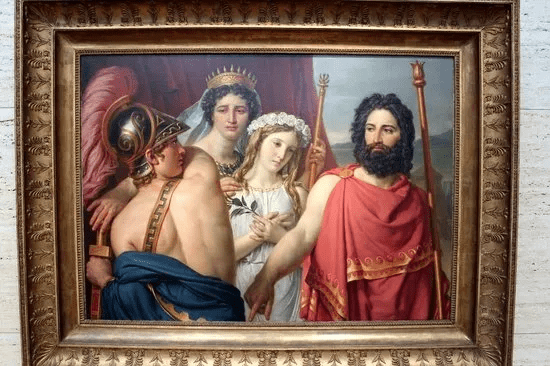25.10.2018
Is High Culture a Pleasure of the Elite, or a Necessity for a Gentleman?
From Renaissance art to classical music, enjoying high culture has largely been seen as a culture for the ruling class & elites– but Raja argues it's an essential element of gentleman's everyday life.

By Raja Izz
Picture: Tom Claeren's Instagram
Among the abundant sophistication available in our cities today, none is more richly pleasing to the addict or more cheaply obtained than culture. Take our city Kuala Lumpur. At the National Visual Gallery or Galeri PETRONAS you can stand — without paying a Ringgit — before some of the most beautiful works of international art ever created (Italian, Argentinian, to name a few). At Malaysian Philharmonic Orchestra, for less than RM 100 and a bit of queuing, you can listen to the greatest orchestras from all over the world. At Istana Budaya you can attend, for a fraction of the real cost, the most extravagant productions of the operatic masterpieces, emerging with your senses so saturated that Netflix programmes tastes of nothing.
A matter of taste
But what exactly is high culture? Those for whom culture has been a long-term emotional investment feel they know what high culture is, and know that it is a thing of supreme value, and highly regarded by the society. From live theatre to operas, from marble statues to illustrations in chapels, these are all considered high culture because they are associated with intelligence, finery, class.
We cannot lay down a law for popular taste or forbid gentleman to enjoy what appeals to them — not unless we can find some serious moral argument that would justify that. But there are certain general principles that every gentleman can assent to. For example, we all recognise the difference between dress codes. We know that we choose to wear smart casual, but also that we choose how we gonna wear it. How do we learn to do that? The answer is culture — both the culture of everyday life and the 'high' culture, as it is sometimes called, in which life becomes fully conscious of itself as an object of judgment. The intellect forms the core of high culture: it is why we teach them, and why we encourage people to take an interest in them. They are doors into the examined life and, as Socrates famously said, 'the unexamined life is not a life for a human being'.
Not your everyday…
By everyday culture I mean the customs, interests and ways of behaving that we spontaneously share — manners, meal-times, ways of dressing; Netflix show, popular youtube songs, Raya festival and holidays. These form the web of society, the many threads of which we hardly notice in peace-time, though they pull together in crisis, which is why so many of those who experienced the last crisis look back on it with nostalgia, as a time of togetherness and trust.
High culture is not like that: it is an elaborate artefact. It depends upon leisure — both the leisure of those who produce it and the leisure of those who enjoy it. Great artists, writers and composers are people with an urge to create. And they make sacrifices in order to do so. But, in every period of history, patrons have stepped in to make those sacrifices possible.
The masterpieces work of Tan Sri P. Ramlee, were largely made possible by the patronage of Shaw Brothers Singapore. In Italy, the Florence's cathedral dome signed designed by Filippo Brunelleschi, was made possible by the patronage of Cosimo de Medici, the Ruler of Florence. Aristocrats & monarchs not only take an interest in poets and painters but also employ them or offer them pensions, as King of France offered a pension to Leonardo Da Vinci. To think that a high culture could really exist without patronage of that kind is to ignore the hard work and dedication required by any serious work of art. Of course, there are artists and writers who subsidise themselves, but they are the exceptions.

Picture: Tom Claeren

'The Anger of Achilles' by Jacques-Louis David.
Could this artwork have been possible without patronage?


